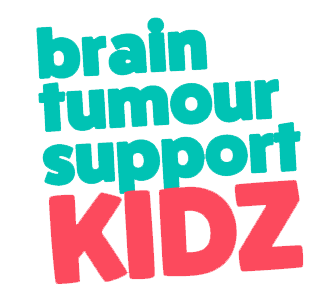
Communication Is Key
Communication is key
Communication is a key part of your relationship with your child and how they experience their world. At times of stress and worry this becomes even more important. Everyone copes with stress differently but there are helpful ways for parents and caregivers to navigate through this difficult time. Holding on to hope is important. Every child and their diagnosis is unique – no one can foresee the future, so remain hopeful. Part of the journey includes accepting that life is different now and you will gradually find your family’s “new normal”. Your child needs to feel they can talk to you about their feelings. It can remind them that you are there for them, no matter what happens.
Children and young people need to feel heard
Your child needs to feel they can talk to you about their feelings. It can remind them that you are there for them, no matter what happens.
Making time to talk is important. If you can, try to reduce the demands on your time so you are more available for your child to talk when they need.
Be ready to listen and avoid judgment. Try to hear the feelings as well as the words they are saying. Acknowledging feelings and normalising these is important. Do this in a way that is appropriate for their age. For young children, try to respond to their questions in simple terms rather than providing too much information.
Some examples might include:
“It’s okay to be frightened, Mummy is here for you.”
“I can see you are worried, I am here for you.”
”I can try to answer any questions you have.”
Try not to rush and allow time for questions. Children take longer than adults to fully understand and process complex situations. They may think about it and come up with questions days or weeks later.
Children take their cues from us
You are likely to be worried and anxious – aim to be calm but honest around your child. It is good for your child to see you have feelings but try to avoid oversharing which can be overwhelming for young children. Keeping calm, and expressing your feelings simply helps. Young children tend to relate everything to their own experience and often blame themselves for what is going on around them. So if you feel really upset, wait until you feel calmer before talking with your child. It can add to your child’s worries if they feel you are not coping as they want to look after you.
An example of speaking calmly about your feelings
“I can see you are worried, I am too, and that’s okay.”
Remember children and young people copy what they see around them. We are children’s role models for how to behave, think and feel. Children learn from us what is important, how they should feel about things and how to deal with things.
An open and honest approach helps children share feelings.
Key things to remember:
Simple clear information about what is going on is important for children.
Respond to questions rather than assuming they want a certain level of detail.
Talk honestly about their brain tumour diagnosis to reduce their worry and fear about the unknown. This approach will allow them to feel more able to share.
If you don’t know the answer to questions it’s okay to say so.
For young people, friends, teachers or school guidance counsellors can be additional supports for them. Don’t be offended if they prefer to talk to others rather than you – this is very common.
Seek your own support and allow space for feelings
This is a really tough time - ensure you seek your own support and other adults who you can share your feelings with.
It’s OK to show feelings. Talking about a loved one’s brain tumour diagnosis with children and young people is likely to be extremely emotional. Expressing emotions in front of your child will show them that feeling sad or worried is totally natural and normal.
Take care not to overwhelm your child when your own feelings are big and unmanageable. This can be scary for children and make them feel responsible for making you feel better. Be available for them to share their feelings at a time when you feel calm and in control.
Being a “mirror” for feelings can help. Children learn about feeling words from us. Having a name for feelings helps children understand and manage their feelings, such as “I can see you are feeling sad”. Reassure them that it’s okay to have lots of different feelings.
Our KIDZ brainbox has a card game Emotional Warriors to help teach kids about big emotions and that all emotions are normal. It is available free here LINK.
Be mindful of developmental differences
Children understand and process information in different ways and at a different pace depending on their development. Here is an overview of things which can be helpful at different ages.
| Toddlers (4y and under) | Children (4 - 12 years) | Young people (12 years +) |
|---|---|---|
| Plenty of cuddles, hugs | Plenty of cuddles, hugs | Be available as much as you can when they want to talk |
| Calm reassuring tone | Remain calm | Allow space and time for processing difficult news |
| Avoid too much reassuring language which suggests there is something to worry about | Reassuring tone | Accept they may want to talk to others more than you at times |
| Simple but honest words focused on your consistent reliable presence | Open and honest descriptions of what's happening |
